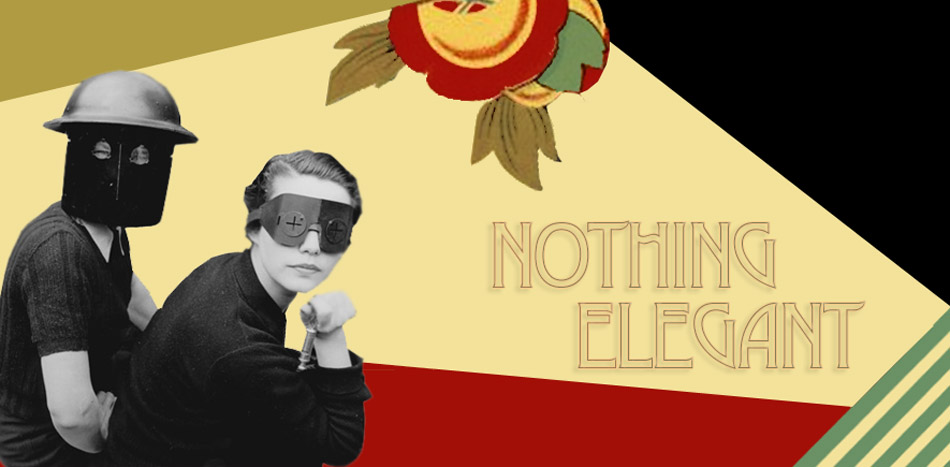 {This painting by Frank Cadogan Cowper is based on the poem La Belle Dame Sans Merci by John Keats}
{This painting by Frank Cadogan Cowper is based on the poem La Belle Dame Sans Merci by John Keats}My excitement about the upcoming film Bright Star is twofold: first, it was directed by Jane Campion, who is arguably one of the most talented filmmakers of our time {her other films -- The Piano, Portrait of a Lady -- are some of my favorites}; also, it is about the life and love of poet John Keats...who I have to blame/thank for my terrible romantic streak.

I discovered my love for poetry -- and for Keats -- when I was around twelve years old. As a gift, I received a copy of Penhaligon's beautifully-scented Language of Flowers book, which was filled with late Romantic and early Victorian poetry. I spent an unhealthy amount of time reading, memorizing {and sniffing!} that treasured little volume. The Keats poems were always my favorites -- they seemed to perfectly resonate with my vague, incomprehensible girlish longings {probably hormones in retrospect}. Some of my favorite Keats poems included: "Ode to a Nightingale," "La Belle Dame Sans Merci," and "When I Have Fears that I May Cease to Be." I love his poems because they teeter on the edge between despondent and utterly transcendent.

If you haven't read him in a while, or if you've never had the pleasure of reading him, he's worth falling in love with. You can find his collected works online here. I'll leave you with another favorite...any ideas on the strange final line?
"Modern Love"
AND what is love? It is a doll dress'd up
For idleness to cosset, nurse, and dandle;
A thing of soft misnomers, so divine
That silly youth doth think to make itself
Divine by loving, and so goes on
Yawning and doting a whole summer long,
Till Miss's comb is made a pearl tiara,
And common Wellingtons turn Romeo boots;
Then Cleopatra lives at number seven,
And Antony resides in Brunswick Square.
Fools! if some passions high have warm'd the world,
If Queens and Soldiers have play'd deep for hearts,
It is no reason why such agonies
Should be more common than the growth of weeds.
Fools! make me whole again that weighty pearl
The Queen of Egypt melted, and I'll say
That ye may love in spite of beaver hats.













9 comments:
Too beautiful. I only knew the Sir Frank Dicksee painting inspired by La Belle Dame Sans Merci...and had no idea about the film, a must see!
This is amazing!
Love romantic scripts!
Lovely :)))
i am so excited for this film too! i loves me some Campion AND some Keats :)
Oh that final line is strange indeed! should look it up for interpretations!The film sounds exciting, Although I have been pretty crappy at going to the cinema recently, I should be on the watch if it comes on show here!
My Romantic Literature class went to see the movie as a "field trip" (not exactly sure if you can consider college class outings as those,but for lack of a better word) and in my class right now we are study Keats, and Shelley, and of course Byron. And I find myself falling in love with all of them.
Jade -- A definite must-see...hope it does him justice. I'm sure with Campion, it will.
Kira -- Me too...I'm a sucker for it, particularly historical dramas!
Annie -- Me too! Great combination!
Eithlinn -- I can't sem to find any decent interpretations...though I did discover it was referring to top hats...not sure if that helps any!
Josslyn -- Sounds like a REALLY lovely class! I also adore Byron!
the last line is a refrence to a bit of aporchya about Cleopatra - the egyptian queen wagered Marc Antony she could give the most expensive dinner in history. The Roman reclined as the queen sat with an empty plate and a goblet of wine . She crushed one large pearl of a pair of earrings, dissolved it in the liquid, then drank it down. so I guess keats meant that if that pearl could be retrieved he would believe that love could exist in a mundane world which is represented by beaver hats - i.e he thought modern love was a trifle in comparsion to the great loves of the ancient world
the last line is a refrence to a bit of aporchya about Cleopatra - the egyptian queen wagered Marc Antony she could give the most expensive dinner in history. The Roman reclined as the queen sat with an empty plate and a goblet of wine . She crushed one large pearl of a pair of earrings, dissolved it in the liquid, then drank it down. so I guess keats meant that if that pearl could be retrieved he would believe that love could exist in a mundane world which is represented by beaver hats - i.e he thought modern love was a trifle in comparsion to the great loves of the ancient world
Hebe -- you're amazing! Thank goodness for brilliant readers! I had a feeling it was something to do with the shallowness of modern love, but I didn't get the connection with Cleopatra!
Post a Comment